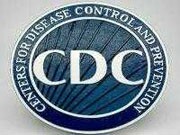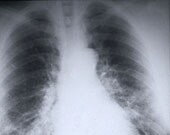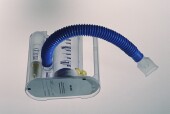Pulmonology
Home Pulmonology
Healthy Diet Independently Tied to Lower Risk of COPD
Consuming less red meat, soda and alcohol tied to less COPD in study
Secondhand Smoke Exposure Down But Still Too High
Two out of five children breathing in secondhand smoke
Lung Cancer Now Leads Cancer Mortality in Developed Nations
Leading cancer killer of American women for many years
A Little Jogging Goes a Long Way
Just an hour or two a week confers life-extension benefits, researcher contends
Work-Related Asthma Underdiagnosed
People seem to be worried about how disease might affect their employment, income
Patient Engagement Can Cut Costs, Improve Outcomes
Initiatives can decrease hospital visits, cut morbidity and mortality, up treatment adherence
January 2015 Briefing – Pulmonology
Here are what the editors at HealthDay consider to be the most important developments in Pulmonology for January 2015. This roundup includes the latest...
CDC: ~8 Percent of U.S. Adults Nonadherent Due to Rx Costs
Patients skipping doses, taking less medication or delaying filling prescriptions
Sleeping Well in Middle Age May Pay Off Later in Life
Better functioning reported decades afterward, researchers find
Difficulty Falling Asleep Linked to Higher Risk of Hypertension
Risk up with regularly taking longer than 14 minutes to fall asleep



















